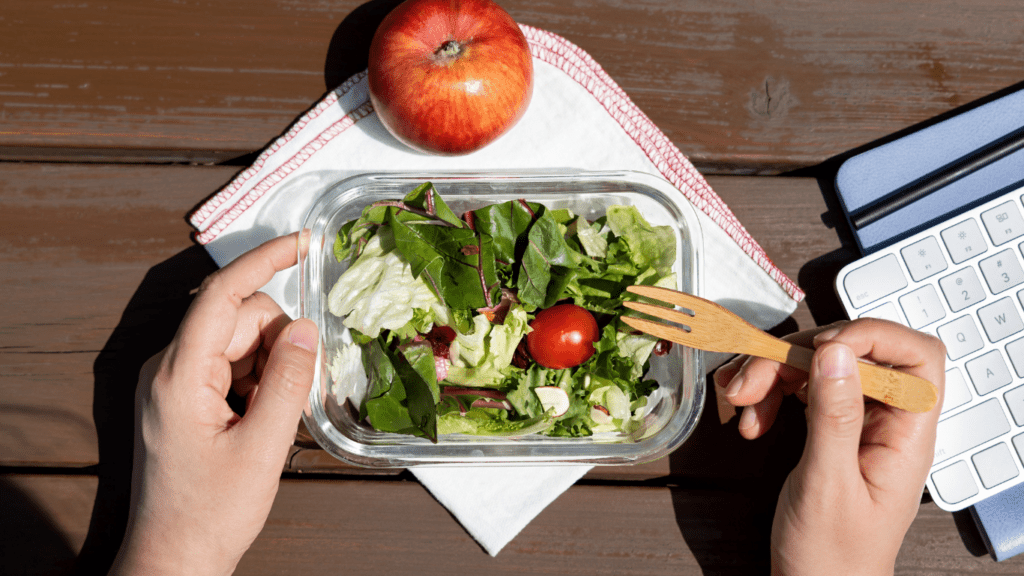Navigating the world of adolescent nutrition can be a challenging journey for both parents and teens alike. As a seasoned health enthusiast, I’ve delved into the realm of strategies aimed at fostering healthy eating habits among teenagers. Encouraging teens to make nutritious choices is crucial for their overall well-being and development. In this article, I’ll share insights on effective approaches that can help instill a positive relationship with food in young adults.
From my experience in the health and wellness domain, I’ve discovered that establishing a supportive environment is key to promoting healthy eating behaviors in teens. By incorporating simple yet impactful strategies into daily routines, such as involving teens in meal planning or setting a good example through my own eating habits, I’ve witnessed positive changes in their attitudes towards food. Join me as I delve deeper into practical tips and tricks that can empower both parents and teens to embrace a wholesome approach to nutrition.
Understanding the Importance of Healthy Eating in Teens
As a health enthusiast, I recognize the crucial role of nutrition in adolescent development.
- The Impact of Nutrition on Adolescent Development
Nutrition plays a vital role in supporting the physical growth, cognitive function, and overall well-being of teenagers. - Common Nutritional Challenges for Teenagers
Adolescents often face challenges such as poor food choices, irregular eating patterns, and reliance on convenience foods, which can lead to nutritional deficiencies.
Strategies to Promote Healthy Eating Among Teens
Encouraging Family Meals:
I recommend prioritizing family meals as they offer a great opportunity to model healthy eating behaviors. Eating together encourages communication and sharing, creating a positive environment for teens to develop good eating habits. It’s a chance for me to introduce a variety of nutritious foods, making it easier for teens to adopt a balanced diet.
Making Healthy Foods Accessible and Appealing:
In my experience, keeping healthy foods readily available at home is key. Stocking up on fruits, vegetables, whole grains, and lean proteins makes it more convenient for teens to make nutritious choices. Additionally, involving teens in grocery shopping and meal preparation can increase their interest in healthy foods. I find that presenting these foods in appealing ways, such as colorful fruit bowls or veggie-packed stir-fries, can make a significant difference in encouraging teens to opt for nutritious options.
Educational Approaches to Improve Teen Eating Habits
I believe that integrating nutrition education into school curriculums is a crucial step in promoting healthy eating habits among teenagers. By incorporating lessons on nutrition, meal planning, and the importance of balanced diets into the school syllabus, we can equip teens with the knowledge and skills they need to make healthier food choices.
When it comes to using technology and social media, I find them to be powerful tools in reaching teenagers and influencing their dietary decisions positively. Creating engaging and informative content about nutrition on platforms that teenagers frequent can help increase awareness and change attitudes towards healthy eating. Additionally, utilizing apps or online resources that provide nutritional information, healthy recipes, and meal planning tips can support teens in making better food choices.
Role of Parents and Caregivers in Developing Healthy Eating Habits
To encourage healthy eating habits in teens, parents and caregivers play a crucial role in shaping their dietary choices. By setting a positive example and maintaining open communication, adults can significantly impact teenagers’ attitudes towards food and nutrition.
Setting a Positive Example
I lead by example in my approach to food choices, demonstrating the importance of nutritious eating habits to my teen. By consistently opting for balanced meals and incorporating a variety of fruits and vegetables into my diet, I showcase the benefits of a healthy plate. It’s essential for parents to model positive behaviors around food, as teens often mirror the eating patterns they observe at home. Emphasizing the consumption of whole foods and limiting processed snacks sets a foundation for adolescents to develop similar habits.
Maintaining Open Communication
I prioritize open and honest conversations with my teen about nutrition and food choices. By fostering a non-judgmental environment where my teenager feels comfortable discussing their eating preferences, I create space for dialogue around healthy habits. Encouraging teens to share their thoughts on meal options and involving them in decision-making processes empowers them to take ownership of their dietary selections. Regular discussions about the importance of a balanced diet and the impact of food on overall well-being help reinforce the value of healthy eating practices in adolescents’ minds.



